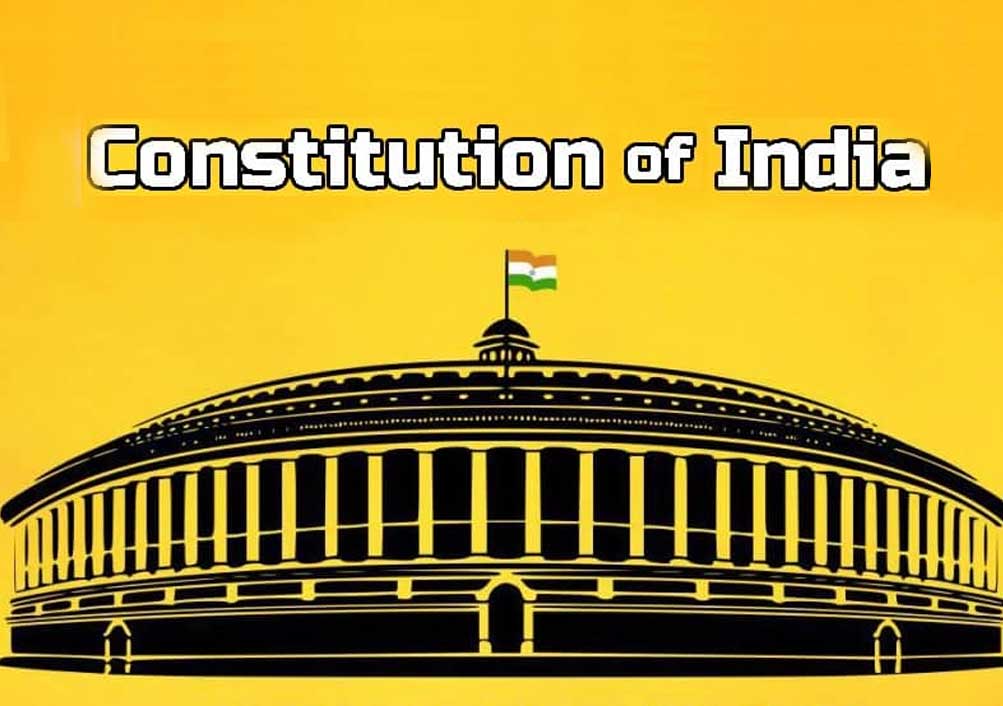Amendment having retrospective operation which has effect of taking away benefit available to employee under existing rule, is violative of rights guaranteed under Articles 14 & 16 of Constitution: SC

Read Judgment: The Punjab State Cooperative Agricultural Development Bank Ltd. V. The Registrar, Cooperative Societies & Others
Pankaj Bajpai
New Delhi, January 12, 2022: The Supreme Court has opined that an amendment having retrospective operation which has the effect of taking away the benefit already available to the employee under the existing rule indeed would divest the employee from his vested or accrued rights and that being so, it would be held to be violative of the rights guaranteed under Articles 14 and 16 of the Constitution.
A Division Bench of Justice Ajay Rastogi and Justice Abhay S. Oka observed that that there is a distinction between the legitimate expectation and a vested/accrued right in favour of the employees, and the rule which classifies such employee for promotional, seniority, age of retirement purposes undoubtedly operates on those who entered service before framing of the rules but it operates in futuro.
Going by the background of the case, Punjab State Cooperative Agricultural Development Bank (Appellant – Bank) is a registered cooperative society, formed with principal object of ensuring timely delivery of credit to the farmers, who are its members. Prior to 1989, the employees of the appellant Bank were covered under the Employees Provident Fund and Miscellaneous Provisions Act, 1952. Later, the Department of Finance, Government of Punjab, pursuant to recommendations of the Punjab Pay Commission to bring the employees serving in various Public Sector Undertakings and State aided institutions under purview of the State Pension Rules, solicited the views of the concerned organizations to communicate the additional financial burden involved in each case and whether the organizations could bear the additional liability out of their own resources.
As a consequence thereof, the pension scheme of the employees and Officers in the common cadre was introduced w.e.f April 1, 1989. In furtherance thereof, the appellant Bank sent a letter to the Registrar, Cooperative Societies, Punjab, seeking approval for introduction of the pension scheme for its employees covered under the Rules, 1978, which was granted. In furtherance of the same, the contributions made by the employees and the appellant Bank were transferred to create the pension corpus fund to make it functionally viable and a trust was created. The employees of the appellant Bank who had opted for pension became members of the pension scheme and continued to derive the benefit of pension till the year 2010.
Later, when the appellant Bank found the scheme to be unviable on account of financial constraints, the Board of Directors of the appellant Bank reconsidered the matter about giving pension to the bank employees and sent a letter to the Registrar, Cooperative Societies, Punjab, seeking approval of the Resolution. Although the proposal was turned down by the Registrar, Cooperative Societies, still the Board of Directors decided to discontinue the pension scheme and revert to the scheme of Contributory Provident Fund with a proposal of One Time Settlement. Pursuant thereto, Rule 15(ii) stood deleted.
However, since the appellant Bank much before the amendment had stopped making payments of pension in terms of Rule 15(ii) of the Rules 1978, the employees approached the High Court, which observed that employees became members of the pension scheme and were paid their regular pension for sufficient time which cannot be defeated and taken away retrospectively detrimental to their interest. The High Court further held that the amendment which has taken away the vested and accrued right of the employees to get pension and that too with retrospective effect would be violative of Article 14 of the Constitution.
After considering the submissions, the Apex Court found that that the rule making authority was presumed to know repercussions of the particular piece of subordinate legislation and once the Bank took a conscious decision after taking permission from the Government of Punjab and Registrar, Cooperative, introduced the pension scheme with effect from April 1, 1989, it can be presumed that the competent authority was aware of the resources from where the funds are to be created for making payments to its retirees.
And merely because at a later point of time, it was unable to hold financial resources at its command to its retirees, would not be justified to withdraw the scheme retrospectively detrimental to the interests of the employees who not only became member of the scheme but received their pension regularly at least upto the year 2010 until the dispute arose between the parties and entered into litigation, added the Court.
Speaking for the Bench, Justice Rastogi observed that non-availability of financial resources would not be a defence available to the appellant Bank in taking away the vested rights accrued to the employees that too when it is for their socioeconomic security.
The pension which is being paid to them is not a bounty and it is for the appellant to divert the resources from where the funds can be made available to fulfill the rights of the employees in protecting the vested rights accrued in their favour, concluded the Bench.
So far as the arrears towards element of pension to which the retired employees are entitled for, the appellant Bank is at liberty to pay arrears towards pension upto December 31, 2021 in 12 monthly instalments in the next one year by the end of December 2022 and those employees who have accepted payment under one time settlement at a given point of time, what is being paid to them is always open for adjustment against arrears of their due pension, added the Top Court.
Sign up for our weekly newsletter to stay up to date on our product, events featured blog, special offer and all of the exciting things that take place here at Legitquest.




Add a Comment